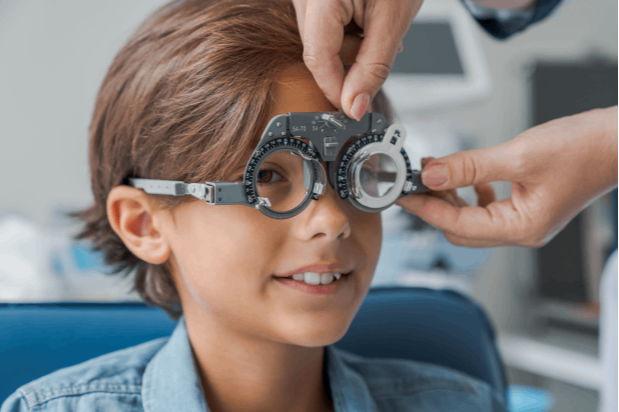Featured
Table of Contents

Regular eye assessments are necessary for keeping good vision and discovering prospective eye health and wellness issues early. Nonetheless, the regularity of these examinations can vary substantially based upon an individual's age, way of living, and total wellness. Understanding the recommended routine for eye examinations can aid guarantee that individuals of any ages receive ideal treatment and surveillance for their eye health.
Infants and Toddlers (0-2 Years)
For young children and babies, eye examinations are vital for identifying any type of potential vision problems early on. The American Academy of Ophthalmology recommends that a youngster's first eye test should happen at around 6 months of age. During this initial go to, the eye care specialist will certainly examine the kid's visual growth and look for any type of noticeable eye problems.Following this initial examination, it is suggested that youngsters have an additional eye exam at age 3. This check out will certainly concentrate on evaluating the child's overall aesthetic function, including eye positioning and the ability to track objects. If no concerns are spotted, the next examination ought to be set up before the youngster begins college, generally around age 5 or six.
School-Aged Children (6-18 Years)
Normal eye tests must be set up every one to two years when kids get to college age. Vision is essential for finding out and advancement, and several institutions conduct vision screenings. However, these screenings do not change a thorough eye test by an eye treatment specialist.For children included in sports or activities calling for significant aesthetic emphasis, annual eye exams might be recommended. In addition, if a kid exhibits signs of vision problems-- such as difficulty checking out, scrunching up your eyes, or frequent migraines-- a visit to the eye physician need to be arranged asap.
Young Person (19-39 Years)
Youthful adults generally have fewer vision modifications than older age teams, yet normal eye exams continue to be necessary. The basic recommendation is to schedule an eye exam every 2 years throughout this duration. People with certain danger aspects-- such as a household background of eye disease, diabetes, or those who use contact lenses-- need to think about yearly eye tests.Additionally, those who invest significant time on digital devices might experience electronic eye pressure. If signs and symptoms such as dryness, tiredness, or blurred vision take place, it might be a good idea to see an eye care expert quicker.
Grownups (40-64 Years)
As individuals go into midlife, the possibility of creating vision issues boosts. Grownups aged 40 to 64 should set up eye exams every one to two years. This age may start to experience presbyopia, a natural age-related condition that makes it challenging to focus on close things. Eye tests can additionally help discover various other common age-related problems such as glaucoma, cataracts, and macular deterioration.If people in this age group have danger elements like high blood stress or diabetes, they might require even more regular evaluations to monitor their eye wellness closely.
Senior Citizens (65 Years and Older)
For senior citizens, normal eye exams end up being much more essential. The American Optometric Association advises that individuals matured 65 and older have an eye test a minimum of when a year. Older adults are at a greater threat for various eye conditions, consisting of cataracts, glaucoma, and age-related macular degeneration. Early discovery and therapy of these conditions can protect against vision loss and boost the high quality of life.Conclusion.
Understanding the suitable routine for eye tests based on age is essential for maintaining optimum eye wellness throughout life. By adhering to these guidelines and seeking advice from with an eye treatment expert, individuals can take proactive actions towards maintaining their vision and overall health and wellness.Table of Contents
Latest Posts
Host Your Perfect Occasion: Place Rental Options for every single Occasion
Published Mar 27, 25
1 min read
Discover Leisure at the Claridge Indoor Swimming Pool
Published Feb 01, 25
1 min read
The Advantages of Custom-made Furnishings: Why It's Worth the Financial Investment
Published Jan 24, 25
0 min read
More
Latest Posts
Host Your Perfect Occasion: Place Rental Options for every single Occasion
Published Mar 27, 25
1 min read
Discover Leisure at the Claridge Indoor Swimming Pool
Published Feb 01, 25
1 min read
The Advantages of Custom-made Furnishings: Why It's Worth the Financial Investment
Published Jan 24, 25
0 min read